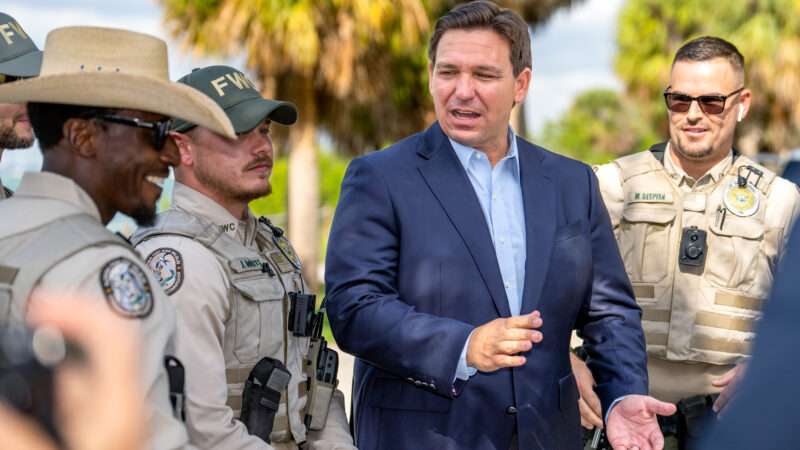
While addressing a gathering of law enforcement officers on Monday, Florida Gov. Ron DeSantis, a Republican, said he hopes to change state law to make it easier to execute convicted criminals.
Calling it “one of the things we have to address,” DeSantis said that a “supermajority” of jurors ought to be sufficient to sentence someone to death.
“If just one juror vetoes it, then you end up not getting the sentence,” DeSantis said during remarks delivered at the Florida Sheriffs Association Conference. “Maybe eight out of 12 have to agree, or something, but we can’t be in a situation where one person can just derail this.”
DeSantis was expressing his frustration with the decision of a jury in November to sentence Nikolas Cruz, who killed 17 people at Marjory Stoneman Douglas High School in 2018, to life in prison rather than handing down the death penalty. Despite the governor’s description of the jury, FloridaPolitics.com notes that there were three jurors, not just one, who refused to impose the death penalty.
Prior to 2016, Florida allowed juries to impose the death penalty with as little as a 7-to-5 majority. That changed after the state Supreme Court ruled in 2016 that “the jury’s recommended sentence of death must be unanimous” in order to comport with the Eighth Amendment’s prohibition on cruel and unusual punishments. In a separate case decided at the same time, the state’s high court invalidated a newly passed law that would have allowed the death penalty if 10 of the 12 jurors recommended it.
A year later, the state legislature and then–Gov. Rick Scott, a Republican, approved a new law requiring unanimous juries in death penalty decisions.
While DeSantis’ remarks on Monday were somewhat vague, it would appear the governor is preparing to revisit the territory staked out by that overturned 2016 law that would have allowed supermajority juries to recommend the death penalty.
He may face a more welcoming legal environment now, as the Florida Supreme Court in 2020 overturned its own ruling in that 2016 death penalty case. So while the state law requiring unanimous juries in death penalty decisions remains in force, the state’s high court has signaled that convicts can once again be sentenced to death by non-unanimous juries.
Returning to a situation in which non-unanimous juries can impose the death penalty would make Florida a serious outlier in terms of capital punishment policy. Of the 30 states where the death penalty remains on the books, only Alabama allows a judge to impose the sentence with less than a majority of the jury agreeing—there, at least 10 jurors must vote for the death penalty, a higher threshold than what DeSantis suggested he’d like to see in Florida. The state would also be an outlier when compared with the standard required for federal death penalty cases, which must have a unanimous recommendation from the jury.
There’s no doubt that the outcome of the Parkland shooter’s trial elicited strong emotional responses from those closely affected by it. “There are certain crimes where any punishment other than [the death penalty] just doesn’t fit the crime,” DeSantis said Monday. “So I was very disappointed to see that.”
But strong emotions are not the best guides for policy making—and that’s especially true in situations where the stakes are quite literally life and death. As Reason‘s CJ Ciaramella noted in 2020, Florida has had more exonerations of death row inmates than any other state in the country: roughly one for every three executions carried out. That ought to inspire more humility, not aggressiveness, in deciding when the state should be allowed to kill.
Perhaps DeSantis has a more rational argument for changing Florida’s death penalty laws to make it easier for the state to kill convicted criminals, but the case he outlined on Monday seems more based on vengeance than on justice.
The post Ron DeSantis Says Florida Shouldn't Require Unanimous Juries in Death Penalty Cases appeared first on Reason.com.
from Latest https://ift.tt/1DN7GKY
via IFTTT